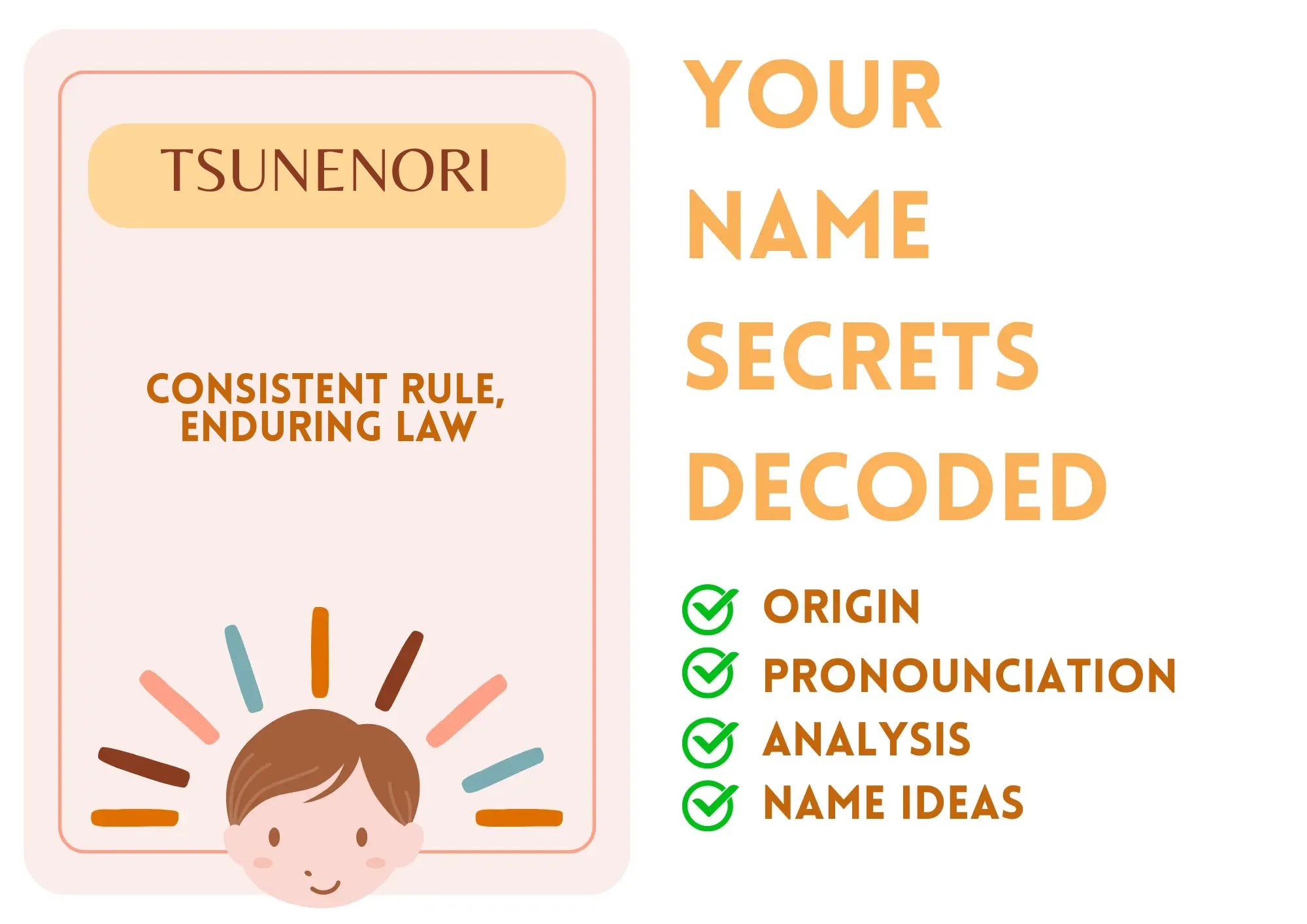
Tsunenori
Tsunenori is a distinctive name of Japanese origin, translating to 'consistent rule' or 'enduring law.' It is often associated with qualities of stability, permanence, and reliability, making it a cherished choice in Japanese culture. While primarily a male name, it can be considered unisex depending on familial or regional customs.
The name is particularly significant within the context of Japanese family heritage, emphasizing the importance of tradition and duty. It is appreciated for the profound meanings it carries, indicative of deep family values and responsibilities.
Tsunenori is well-received due to its unique sound, and it resonates positively with those who value tradition. It is relatively easy to write and pronounce, with nicknames like Tsune or Nori being common among close family and friends.
Basic Information
Gender: Boy
Sounds Like: TSOO-neh-noh-ree
Pronunciation Explanation: The name is pronounced with emphasis on the first syllable 'TSOO,' followed by 'neh,' 'noh,' and ending with 'ree.'
Summary and Meaning
Meaning: consistent rule, enduring law
Origin: The name Tsunenori has deep Japanese roots, linked to cultural traditions and values focused on endurance and consistent governance.
Usage: Tsunenori is traditionally a masculine name, but variations of it can sometimes be adopted in unisex contexts.
Name Number (Chaldean)
Name Number (Pythagorean)
Religious and Cultural Significance
Religion: Shinto
Background: In Japanese culture, especially in Shinto beliefs, names like Tsunenori evoke the idea of stability and continuity, which are prized values in both religion and cultural practices.
Cultural Significance: Tsunenori embodies a sense of family heritage and continuity, representing the unbroken line of tradition that families strive to maintain.
Historical Significance: Historically, names like Tsunenori represent samurai families where loyalty and consistency of character were highly valued, tying the name to notions of honor and steadfastness.
Popular Culture
Literature and Mythology: While less common in contemporary literature, names reminiscent of Tsunenori might appear in historical novels or folklore, reflecting the values of unwavering loyalty and governance.
Movies and Television: Characters with similar names are often portrayed as wise or venerable leaders in Japanese films, reflecting the qualities of steadfastness and tradition.
Feelings and Perceptions
Perception: Tsunenori is viewed positively, often associated with strong familial bonds, stability, and respect. It conveys a sense of gravity and earnestness.
Positive Feelings: Unique, robust, traditional, dependable, honorable.
Negative Feelings: May be perceived as formal; some might find it challenging to pronounce initially.
Practical Considerations
Ease of Writing and Calling: Tsunenori is moderately easy to write and pronounce, with a relatively simple structure, though its length may require practice for some. It consists of eight letters and four syllables.
Common Typos and Misspellings: Tsunenori,Tsunnori,Tsunenory,Tunenori
Common Nicknames: Tsune,Nori
Compatibility Analysis
Famous Persons Named Tsunenori
Related Names
Similar Sounding Names:
Tsunemi,Tsunetaka,Tsunemoto